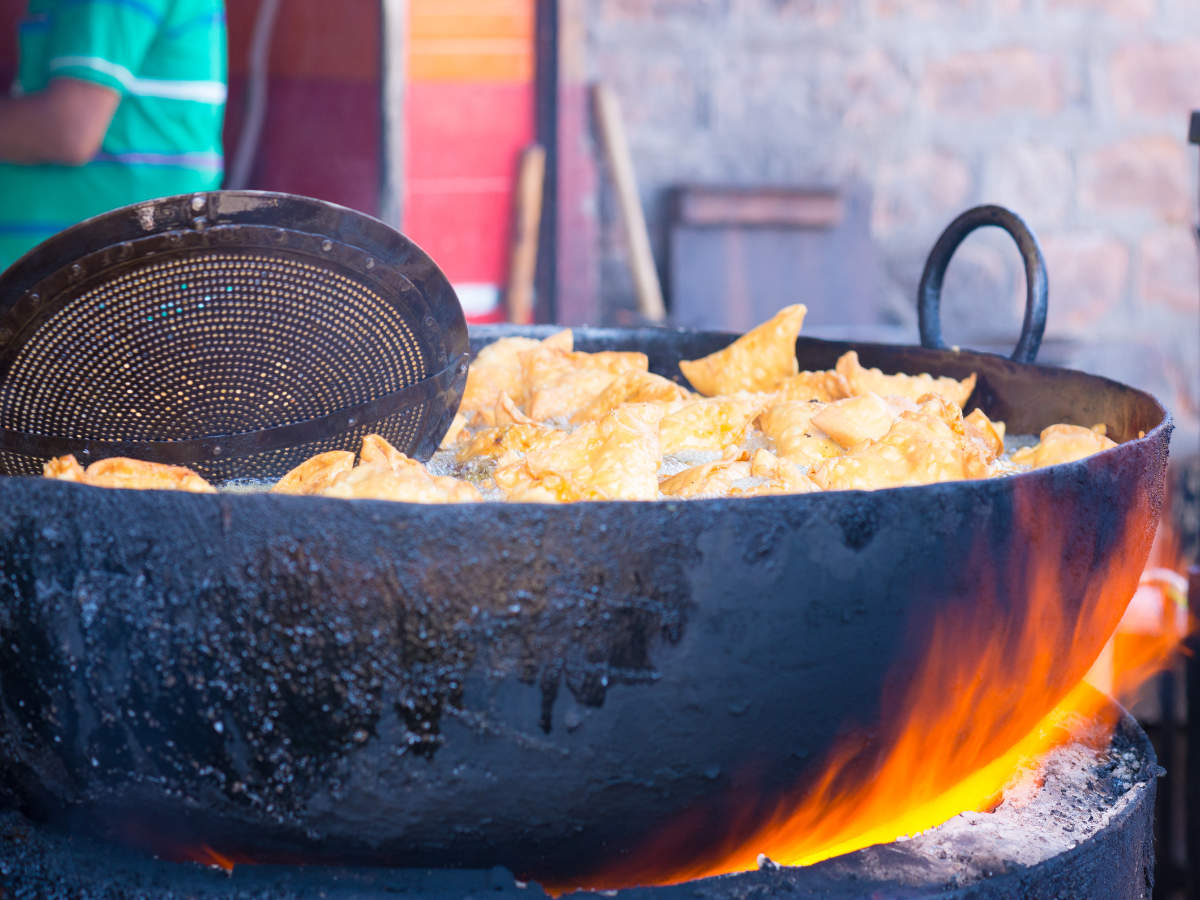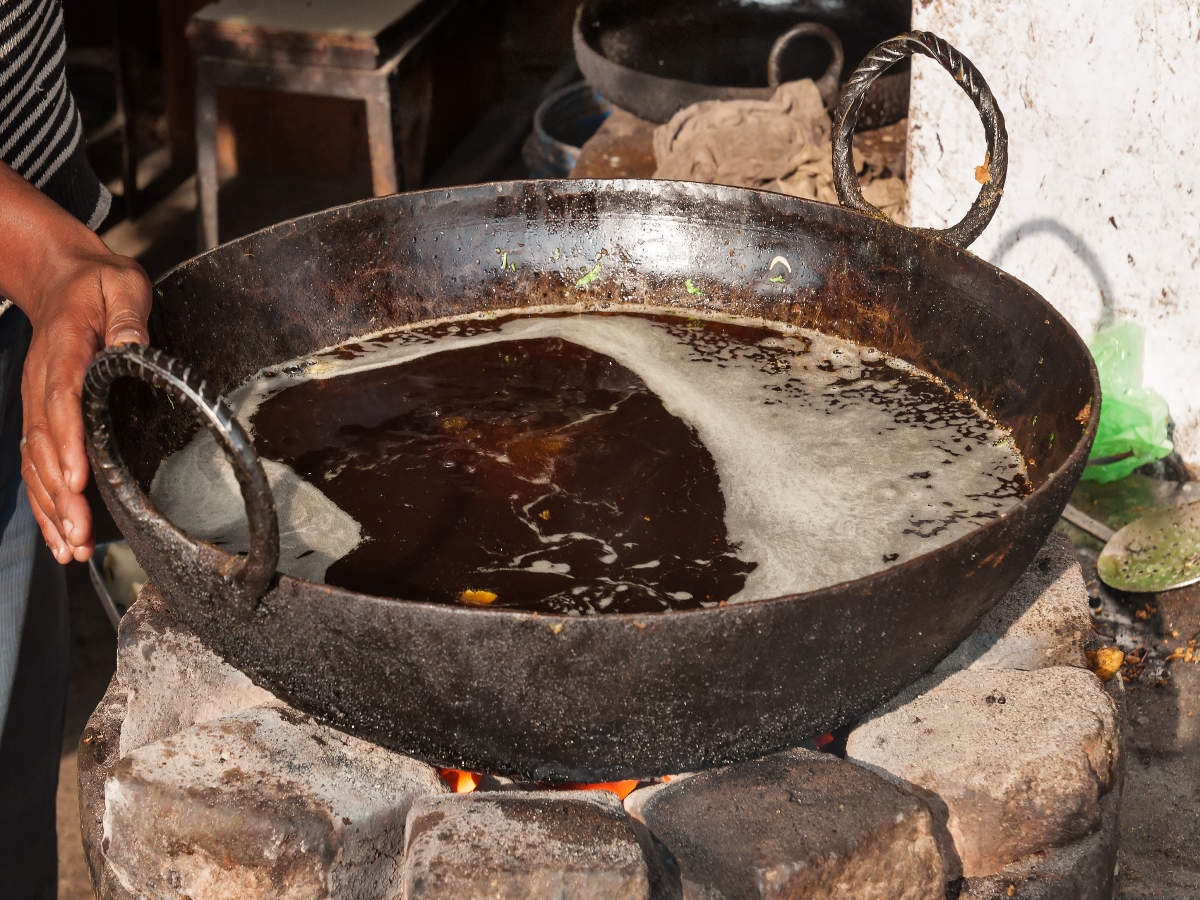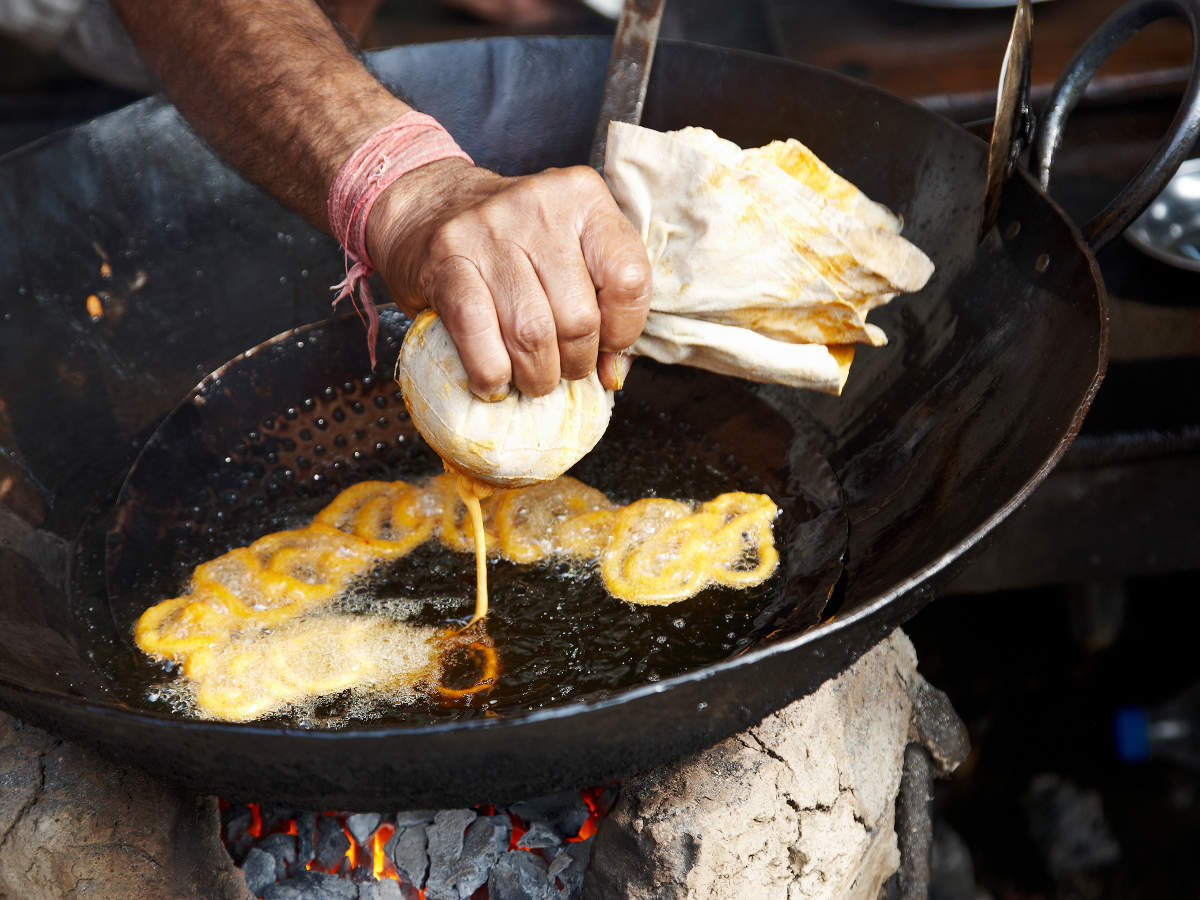Aug 29, 2019
Kerala Food safety raids to be recorded
Thiruvananthapuram: With the Vigilance and Anti-Corruption Bureau (VACB) pulling up food safety authorities for irregularities during food safety raids in the state, the Kerala Commissionerate of Food Safety has made video-graphing or mobile recording mandatory for every food safety raid to ensure transparency.
For ensuring best hygienic practices at eateries and the availability of safe food during Onam festival season, the Commissionerate has launched special drive across the state.
The commissioner of food safety has given strict instructions to the squads to record the raids to avoid complaints. According to officials, they would continue inspection till September 14.
The squads would ensure the quality of milk, edible oil, pappadam, payasam mix, Jaggery, ghee, vegetables, fruits, meat, tea and cereals. Special squads will carry out night-time inspections at check posts.
"Normally we don't film every raid we carry out. If the conditions of the restaurant are worse or if there is any dispute we shoot and keep a video record on the raid. Keeping a visual record would help improve transparency and avoid allegations later," said an official.
The official said that strict action would be taken against eateries operating under unhygienic conditions or without a license or registration.
"The list of such eateries ordered to be closed down by the squads would be provided to the nearest police station," said the official.
The Commissionerate has also granted permission to hire an adequate number of vehicles to facilitate the special squad.
In the first phase of the special drive launched last week, the squads inspected 1,334 food business establishments and collected fine to the tune of Rs 5, 72,500.
The squads served improvement notices to 563 eateries and collected 72 statutory samples and 122 surveillance samples.
Around 22 eateries were shut down for non-compliance of food safety rules.
FSSAI seizes 1.5 tonnes of adulterated tea dust
Officials of the Food Safety and Standards Authority of India (FSSAI) seized 1.5 tonne of adulterated tea dust.
Designated Officer of FSSAI K. Tamilselvan said that the tea dust stock was seized from a house at Idikarai. He said that the half tonne of the seized tea dust was completely adulterated and the remaining one tonne was seized for suspected adulteration.
The tea dust stock was found at the house of Arumugam.
Spot checks
Officials, who got a tip-off on the stock, raided the house on Wednesday afternoon and conducted spot checks.
According to Dr. Tamilselvan, the adulterated tea dust was being sold under the brand name Royal Roses.
“Some of the 500g tea dust packets we seized had 50g sachet of tea dust mixed with high concentration of colourants. This sachet was meant to be mixed with the genuine tea dust to get strong colour. Several other packets contained tea dust which was mixed with colourants and ready for use,” he said.
Lab test
The official added that samples of the tea dust have been lifted which will be tested at a Government laboratory. Further action will be taken based on the results of the laboratory examination.
15000 litres of adulterated cooking oil seized by FSSAI
01/4Adulteration is a major concern

Adulteration of food is a major concern in most third world countries, and India is no stranger to it. A lot of food products are mixed with foreign agents for a variety of reasons. Milk is often mixed with water, milk powder, and even detergent so that more milk can be saved to sell another batch. Vegetables and fruits are adulterated with dye to make the stale variety appear fresh. Adulterated food can be life threatening and can lead to multiple health issues that can be life threatening.
02/4Seizing of adulterated edible oil

A new entrant to the adulterated food list is edible oil. The Food Safety and Standards Authority of India (FSSAI) seized around 1500 litres of unlabelled cooking oil, on suspicion of it being adulterated. The oil tins were stocked in a warehouse near a town called Anur, Coimbatore, and were immediately seized. The warehouse belonged to a resident from Kariyagoundanur village, near Annur.
03/4The raid

The surprise raid was conducted on Monday, 27th August, and it was found that the business was being run by a father-son duo, who were adding refined palm olein, a high fat liquid component of palm oil, to groundnut oil, coconut oil, and sunflower oil. Dr. K. Tamilselvan, Designated Officer of FSSAI in Coimbatore, said, “We have lifted samples of the oils, which will be tested in a Government food laboratory. Further action will be taken based on the test results.”
04/4The business

The duo was mixing super olein, which costs ₹70 per litre, and selling the adulterated groundnut oil for a price ranging from ₹240 to ₹280 per litre. They were selling the oil to many areas within Coimbatore such as Annur, Mettupalayam, Sirumugai and Periyanaickenpalayam, without having obtained a license from FSSAI to carry out the business. This had been going on for four years, and all the oil tins were unlabelled. The warehouse was sealed after the raid.
Coonoor: Public fumes as rodents, dogs invade beef outlets
Residents want a foolproof mechanism to be in place to grant licenses to run meat stalls in the town.

A rat nibbling at the meat in a beef stall in Coonoor.
COONOOR: It’s not just people or customers who flock beef stalls here. Rats and dogs run riots at these beef stalls in the municipal market here in Coonoor, subjecting consumers to great health risks.
Residents want a foolproof mechanism to be in place to grant licenses to run meat stalls in the town.
All this came to light after video-clips of rats running over and nibbling meat stocks in these beef stalls, and stray dogs by the numbers wandering around lazily, quick to lap up wastes thrown around, went viral on social media.
Food Safety and Standards Authority of India (FSSAI) wing officials swung into action and inspected beef stalls on Tuesday evening, and temporarily closed down five shops for not measuring to prescribed hygiene standards. They also seized the beef stacked up in these shops and destroyed it.
However, Rajeshkumar James, secretary of the Citizens' Forum of Coonoor, charged that the lax attitude of the officials gave beef stall owners the advantage to practice unhealthy standards in selling beef.
“Leave alone beef stalls, regular inspection by competent authorities should be ordered by the district administration to ensure that only quality and healthy meat products are sold in the market. Since the buildings that house meat and beef stalls in Coonoor market are very old, steps should be taken to demolish and reconstruct them with a foolproof mechanism in place to check rodents sneaking into the beef and meat stalls. Authorities concerned should explore possibilities of forming a task force consisting of members drawn from the public service organizations, and consumer forums to regularly monitor hygienic conditions in the stalls. Good coordination among the officials and consumer organisations would help curb this type of unhealthy trade practice,” he added.
Govt moots plan to check anti-microbial resistance
The action plan will bring together several departments such as health, drug control, food safety, animal husbandry, the Delhi Pollution Control Committee, the civic bodies, and the Delhi Jal Board to address various factors contributing towards growing resistance.
The draft proposes measures such as the food safety department testing its samples, especially meat and seafood, for antibiotics.
The Delhi government is in the process of drafting a state-level action plan to address the increasing threat of anti-microbial resistance (AMR), which makes common infections more difficult to treat.
The action plan will bring together several departments such as health, drug control, food safety, animal husbandry, the Delhi Pollution Control Committee, the civic bodies, and the Delhi Jal Board to address various factors contributing towards growing resistance.
“When we think about antimicrobial resistance we tend to think of the really sick patients and taking medicines. But, you might be unknowingly consuming antibiotics even if you do not take a pill. This is because antibiotics are used in our foods; the use in agriculture and improper disposal of antibiotics means that it is found in our water too. The action plan will address the challenge holistically,” said Dr Sangeeta Sharma, member secretary of the technical committee that is preparing the action plan.
A zero draft of the action plan developed by the 35-member technical committee was presented to 120 representatives of the various public department and private companies and associations in a meeting on Monday and Tuesday.
Delhi will become the third state after Kerala and Madhya Pradesh to come up with a state-level action plan. The action plan will be finalised by October and the implementation will begin from November.
The draft proposes measures such as the food safety department testing its samples, especially meat and seafood, for antibiotics. The Delhi Jal Board will also be testing water samples.
Delhi’s drug safety department has also written to chemist association to ensure all drug stores across the city store antimicrobial medicines to maintain their efficacy, do not dispense them without proper prescriptions, do not provide the medicines without the supervision of a trained pharmacist, and stamp the prescription after dispensing the medicines to ensure that it is not reused.
“When it comes to strong antibiotics that are categorised in schedule H1 of the drugs and cosmetics act and reporting the number of people purchasing TB drugs, almost 80% of the shops in the city already do it. This advisory is to just to reiterate the provisions of the Act,” said AK Nasa, head of Delhi’s drug control department. The action plan also proposes to have a committee of nodal officers from each department assisted by a core team from the department to monitor the outcomes.
FDA crackdown on pvt milk suppliers continues
Bhopal: MP food and drug administration (FDA) officials carried out more raids on private milk supplier, here on Wednesday. In the last few days, 10 samples from milk dairies Rajhans Dairy products have failed laboratory tests.
After one milk sample was found to contain detergent, the proprietor of Rajhans, Ish Arora was booked under National Security Act (NSA) on Tuesday.
On Wednesday, morning with help of district administration team, FDA sleuths raided the outlet of another milk manufacturer in Bhopal. Milk samples were taken from Mohan Dairy at Minal where in about 125 litres of milk as confiscated. Sample of milk, cheese and other products have also been taken for laboratory test.
The tests are undertaken by MPFDA food testing laboratory at Idgah Hills.
A report on tests is expected to take about four days. Till now, more than 200 tests have been undertaken on food products in Bhopal. It comes on heels on MP government’s ‘Shuddh ke liye Yuddh’ campaign launched in the state against the manufacturers and sellers of adulterated food. Meanwhile, Congress on Wednesday accused former chief minister Shivraj Singh Chouhan of protecting food adulterators during his regime as CM and said he had written to the prime minister not to enforce Food Safety Act.
Reacting to Chouhan’s statement that he was with the Congress government in its drive against food adulteration, state Congress media vice-president, Abhay Dubey, said that during 15 years of his rule, food adulterators had no fear of law. Besides writing to the Prime Minister, he also supported strike of traders against the Act.
His government also gave an affidavit in the apex court assuring that section 272 of the IPC would be amended to provide life imprisonment to persons found guilty of food adulteration, something which it never did.There was only one food lab in the state and it was the reason why from 2016 to 2018, 13,000 samples could not be tested at all. On the contrary, Kamal Nath government has shown firm political will to take on the menace of food adulteration and book offenders under NSA.
CHECK YOUR OIL OR END UP IN THE FRYING PAN
The colourful packs of gingelly oil that cost nearly less than half of the branded ones are not for cooking and its consumption can be injurious to health. Ahead of the festive season, food safety officials are holding talks with oil manufacturers and vendors, conducting raids and lifting samples from across the state for tests.
“Non-edible oil does not come under food safety department but our officials are now looking into this as many people use this oil for cooking. There are labelling defects and the low cost attracts people,” said Tamil Nadu food safety director and additional commissioner Dr K Vanaja.
Preliminary reports of tests done in labs ahead of the festival season suggest this is palm oil mixed with chemicals and dye to give it the colour and odour of fresh gingelly oil. But if this oil is used for cooking, it can cause serious health hazards including digestive disorders and chemical poisoning. “We also found manufacturers preparing edible and non-edible oil on the same premises. It may increase risk of contamination of edible oil,” she said.
An oil committee formed by the government as per the directions of the Madras high court has listed out the dos and don’ts for manufacturers and re-packers of non-edible oil. The new guidelines, likely to come into effect next month, have already been circulated among manufacturers. The court had also insisted on some guidelines since non-edible items did not come under the purview of the Food Safety Act. “So far, there were no guidelines. Products were packed and stored in retail stores along with edible products. Since this oil isn’t pure, the cost is less compared to edible oil. People picked the bottles and packs for cooking,” she said.
The commission has recommended the use of a photograph of a traditional lamp, kuthuvellakku, on a violet pack with the words “not edible” on the front label. It has also insisted that directions of use be mentioned in Tamil and the not-edible tag be in the font-size of at least 10mm. The lamp symbol should cover at least 30% of the space. Among the don’ts, manufacturers should not use the vegetarian sign and the expiry or date of manufacture, or use the term ‘gingelly oil’. No food safety licence is required to manufacture these products and no FSSAI labels should be used, the guidelines said.
Manufacturers have been asked not to use the same assembly line for edible and non-edible oil and ensure the health of workers is good and that they are free from skin diseases.

UNSAFE | Reusing oil to deepfry food items has adverse health effects


Efforts on to convert used oil into biodiesel
Reuse of cooking oil can cause hypertension, Alzheimer’s, heart attack and even cancer. But the same oil can be recycled into environmentally safe biodiesel — a fuel for diesel engines that has been wholly or partly made from vegetable oil. And the food safety department is networking with agents who collect used oil and manufacturers for it.
“Some private oil manufacturers have volunteered to help us. We are in talks with petroleum companies,” a senior health department official said. The factories should have the capability to separate glycerine from fat or vegetable oil through a process called transesterification. “While we produce a safe fuel, we will be able to stop hazardous practice of oil reuse,” the official said.
To curb the reuse of cooking oil by food business operators, FSSAI issued a regulation earlier this year that mandates operators using more than 50 litres of oil to maintain a record of the amount used for frying, quantity discharged, date and mode of disposal and the details of the person who collected it. “This will help the authorities ensure there is no resale by big units to smaller vendors,” said TN food safety director and additional commissioner Dr K Vanaja. Food safety officials in Chennai and Madurai said manufacturers mix a special dye with palm oil to give it the odour and colour of cooking oil or gingelly oil.
“We also have information that some business units sell used cooking oil. The smaller units may be overusing oil,” said an official.
As per FSSAI guidelines, small food business units should not use the same oil for more than three times – although it is ideal to use it just once. Oil should be filtered frequently to remove food particles and it should be disposed when blue-grey smoke appears.
No food business unit can dispose oil into drains. “It has to be handed over to collection agents, just like how hospitals dispose bio-medical waste,” Vanaja said.
Subscribe to:
Comments (Atom)







